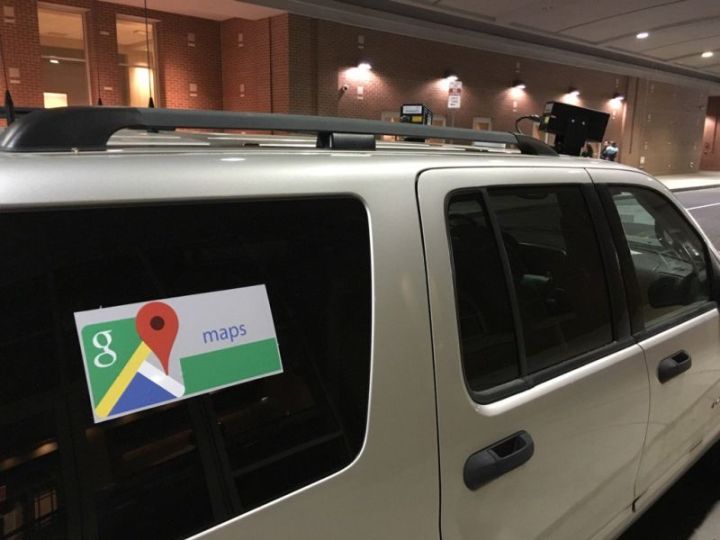
ALPR cameras scan, track, and send license plate and vehicle data to a computer, which in Philadelphia can be stored up to a year. Because ALPR can effectively track an individual’s movements without a warrant, they’re considered controversial. According to ELSAG North America, a company that makes ALPRs and possibly the units in Blaze’s photo, “Generally speaking, License Plate Readers (LPRs) can record plates at about one per second at speeds of up to 100 mph and they often utilize infrared cameras for clarity and to facilitate reading at any time of day or night. The data collected can either be processed in real time, at the site of the read, or it can be transmitted to remote center and processed at a later time.”
The Philadelphia police department has been open about using the scanning technology since 2011, so the question remained about ownership and why it had the decals.
Google was contacted, but Google spokesperson Susan Cadrecha said, “We can confirm that this is not a Google Maps car, and that we are currently looking into the matter.”
Philadelphia fleet manager Christopher Cocci confirmed that the city owned the SUV. Cocci said it was not a state police vehicle, but that he thought it was used by law enforcement.
After contacting the Philadelphia police, Motherboard received the following response later the same afternoon: “We have been informed that this unmarked vehicle belongs to the police department; however, the placing of any particular decal on the vehicle was not approved through any chain of command. With that being said, once this was brought to our attention, it was ordered that the decals be removed immediately.” The department also said it was investigating the use of the labels.
So the question remains as to why the labels were used, but the surveillance camera SUV ownership inquiry, at least, is resolved.



